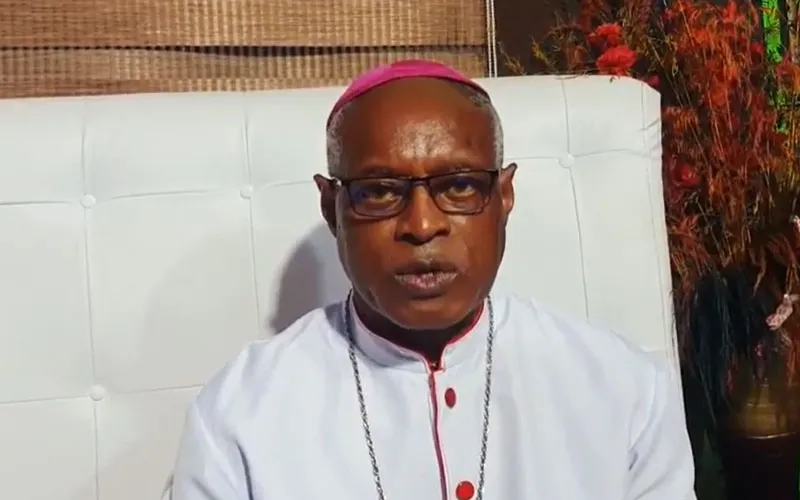Some of the strategies employed in the realization of the initiative include “capacity strengthening for members, advocacy engagements, campaign and public awareness to achieve our goal,” the 60-year-old Catholic member of the Missionary Society of St. Paul of Nigeria (MSPN) who started his Episcopal Ministry in February 2012 says.
An August 18 report indicates that Bishop Umoren along with a Senior Advocate of Nigeria (SAN), Damian Dodo, and the Director of NAPTIP, Arinze Orakwue want Nigeria’s members of parliament “to provide the legislative framework for the courts to confiscate the assets of human traffickers”.
The leaders who spoke during the official launch of three advocacy campaign hashtags by the Action Against Trafficking In Persons Cluster (AATIP) and SCALE on August 17 said such confiscation would not only weaken the criminal networks involved in the vice of human trafficking but also have human trafficking victims profit from what is confiscated.
In his input during the launch of the advocacy campaign hashtags #FundNAPTIP, #ConfiscateTraffickingProceeds, and #SayNoToHumanTrafficking, Bishop Umoren emphasized the need for the relevant government agency tasked with combating human trafficking to be adequately funded.
Without adequate funding, the Catholic Bishop said, the West African country will neither be able to succeed in prosecuting the traffickers nor assist the victims of the vice.
In the August 24 message shared with ACI Africa, the Auxiliary Bishop of Abuja Archdiocese regrets the fact that “trafficking in persons has gone beyond sexual exploitation and domestic servitude; it has now extended to organ harvesting.”
These days, he says, human traffickers “kill people and sell their organs. They believe it is easier for them to get money that way than to start waiting for a prostitute to bring returns. So, it has taken a frightening and scary dimension.”
The Nigerian Catholic Bishop notes that human trafficking a global issue and that no country is spared.
“Human trafficking is a $150 billion industry globally,” he says, adding that every year, “thousands of men, women and children fall into the hands of traffickers, in their own countries and abroad. Almost every country in the world is affected by trafficking, whether as a country of origin, transit or destination for victims.”
The Chairman of JDPC Abuja says that traffickers use fake promises, messages and deceit to lure millions of people into their hands. He adds that “trafficking is a serious crime and a grave violation of human rights.”








